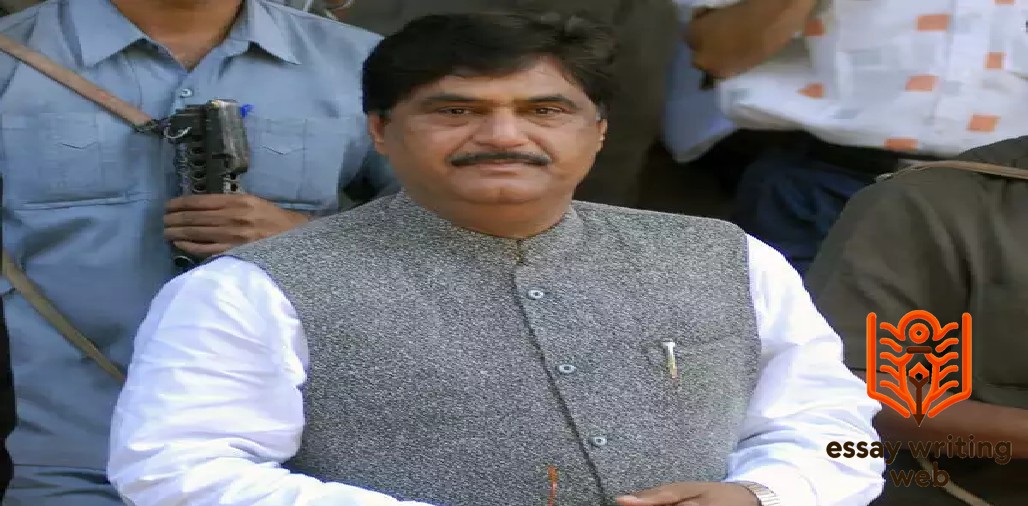 Essay Writing Web
Essay Writing Web
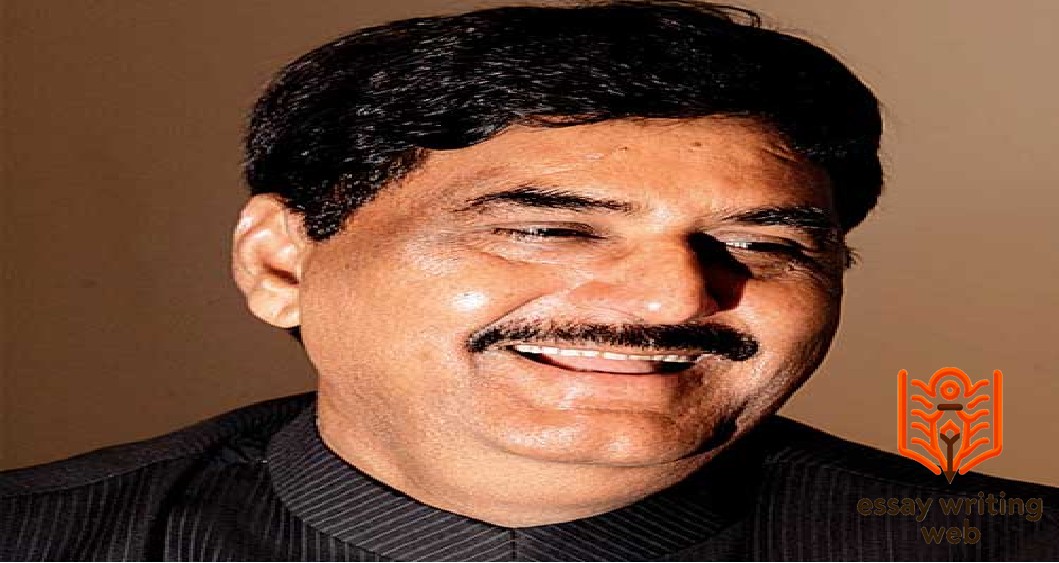
 14-09-2024
14-09-2024
 www.essaywritingweb.com
www.essaywritingweb.com
Gopinath Munde was a prominent Indian politician and a key leader in Maharashtra politics. Born on December 12, 1949, in Parli, Maharashtra, Munde rose from humble beginnings to become one of the most influential leaders in the state. He was a senior member of the Bharatiya Janata Party (BJP) and played a crucial role in shaping the political landscape of Maharashtra as well as contributing to national politics. His focus on rural development and welfare earned him widespread support among the masses, especially in the rural regions.
Munde’s political career began with his association with the Rashtriya Swayamsevak Sangh (RSS) and the Jana Sangh, which eventually merged into the BJP. His leadership skills were quickly recognized, and he rose through the ranks to become the Deputy Chief Minister of Maharashtra from 1995 to 1999. In this role, he was known for his commitment to improving the conditions of the underprivileged, farmers, and rural communities, focusing on areas like healthcare, education, and infrastructure.
Munde's significance in Indian politics extended beyond Maharashtra. After being elected to the Lok Sabha, he took on national-level responsibilities, serving as the Union Minister for Rural Development in 2014. His policies were designed to improve the lives of rural farmers and boost economic development in India's agricultural heartlands.
Unfortunately, Gopinath Munde's life was cut short in a tragic car accident in June 2014, just days after assuming office as a Union Minister. His untimely death left a void in Maharashtra politics, and his legacy continues to inspire many, including his niece, Pankaja Munde, who followed in his footsteps in politics. Gopinath Munde is remembered for his dedication to the people and his unwavering commitment to rural upliftment and national development.
Gopinath Munde was born on December 12, 1949, in a small village called Nathra in Parli, located in the Beed district of Maharashtra. He hailed from a humble, rural family belonging to the Vanjari community, which is a marginalized group in the state. Munde's upbringing in a modest household helped shape his understanding of the struggles faced by rural communities, which later became a cornerstone of his political vision.
Munde was one of five siblings and grew up with strong family values. His early life was influenced by the hardships of rural living, which inspired his deep-rooted commitment to improving the lives of farmers and the rural poor. His brother, Pandit Anna Munde, also played an important role in his early life, encouraging him to pursue education and politics.
Gopinath Munde’s educational journey began in his village and continued at the Zilla Parishad School in Nathra. Later, he attended college at the prestigious Rajarshi Shahu College in Latur, where he graduated with a degree in Arts. His education provided him with a broader perspective on social and political issues, which, combined with his experiences, fueled his passion for politics and rural development. This background laid the foundation for his future leadership.
Gopinath Munde’s entry into politics was deeply influenced by his early exposure to the socio-political issues of rural Maharashtra. Growing up in a marginalized community, Munde was acutely aware of the struggles faced by farmers and the rural poor. His firsthand experience with poverty and inequality sparked his desire to bring about change in society.
One of the key influences on Munde’s political journey was the Rashtriya Swayamsevak Sangh (RSS). During his college years, he became involved with the RSS, which instilled in him a strong sense of nationalism, discipline, and commitment to public service. Through his work with the RSS, Munde became connected with leaders in the Janata Party, which eventually evolved into the Bharatiya Janata Party (BJP). His close association with leaders like Pramod Mahajan further solidified his interest in politics and his ambition to serve the people.
Munde was particularly inspired by the vision of empowering the rural population, ensuring they had access to education, healthcare, and economic opportunities. His early experiences with grassroots activism, coupled with his understanding of the challenges faced by marginalized communities, drove his passion to advocate for rural development and social justice throughout his political.
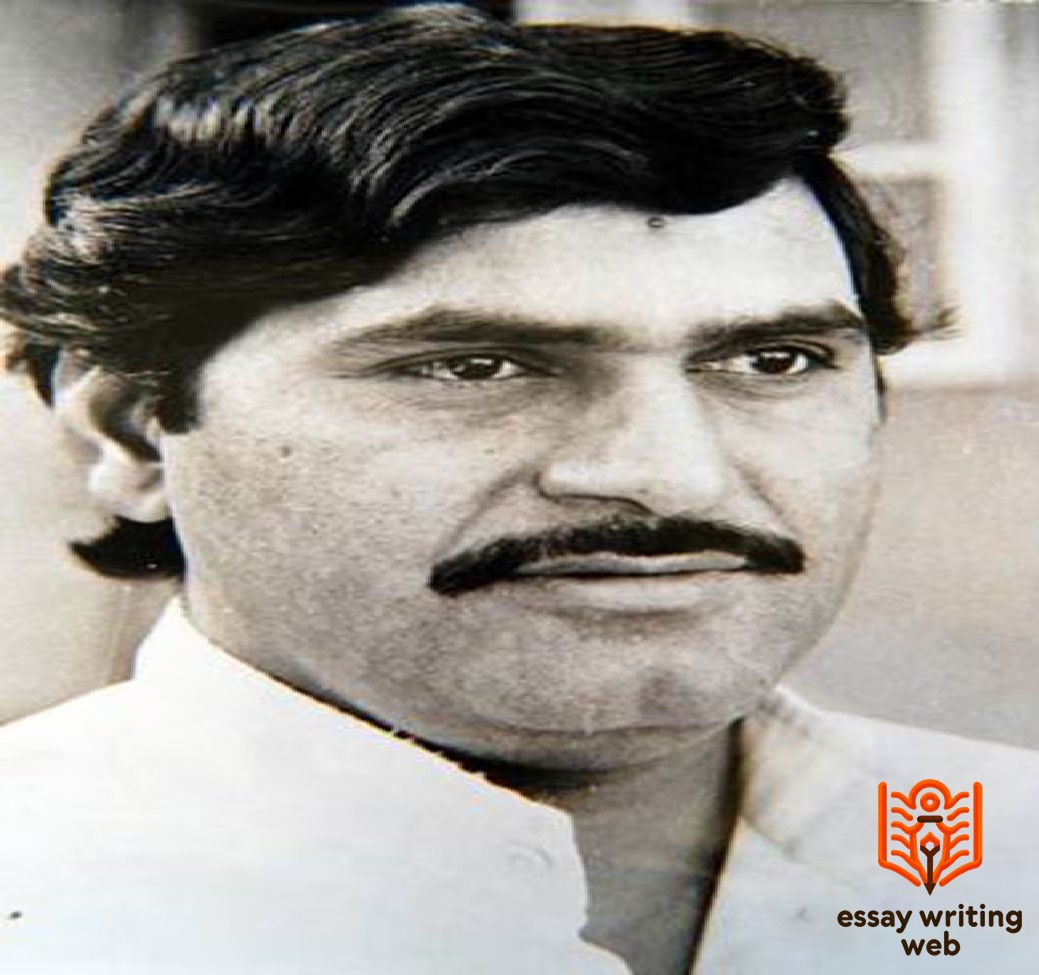
Gopinath Munde’s political career was marked by his rise from a grassroots leader to a key figure in both Maharashtra and national politics. His journey began in the late 1970s when he became actively involved with the Rashtriya Swayamsevak Sangh (RSS) and later the Janata Party. In 1980, with the formation of the Bharatiya Janata Party (BJP), Munde found his political home, and he quickly established himself as a leader dedicated to the welfare of rural communities and farmers.
Munde's first significant political role came in 1980 when he was elected to the Maharashtra Legislative Assembly. Over the next decade, he emerged as a strong leader in the state, known for his charismatic leadership and his ability to connect with the common people. In 1995, he was appointed Deputy Chief Minister of Maharashtra when the BJP-Shiv Sena alliance came to power. During this time, Munde focused on law and order, rural development, and tackling corruption.
His success at the state level propelled him into national politics. In 2009, Munde was elected as a Member of Parliament in the Lok Sabha, where he continued his efforts to improve the lives of farmers and the rural population. In 2014, he was appointed Union Minister for Rural Development in Narendra Modi’s government. His tenure was tragically cut short by his untimely death, but his contributions to rural development and his leadership in Maharashtra left a lasting impact on Indian politics.
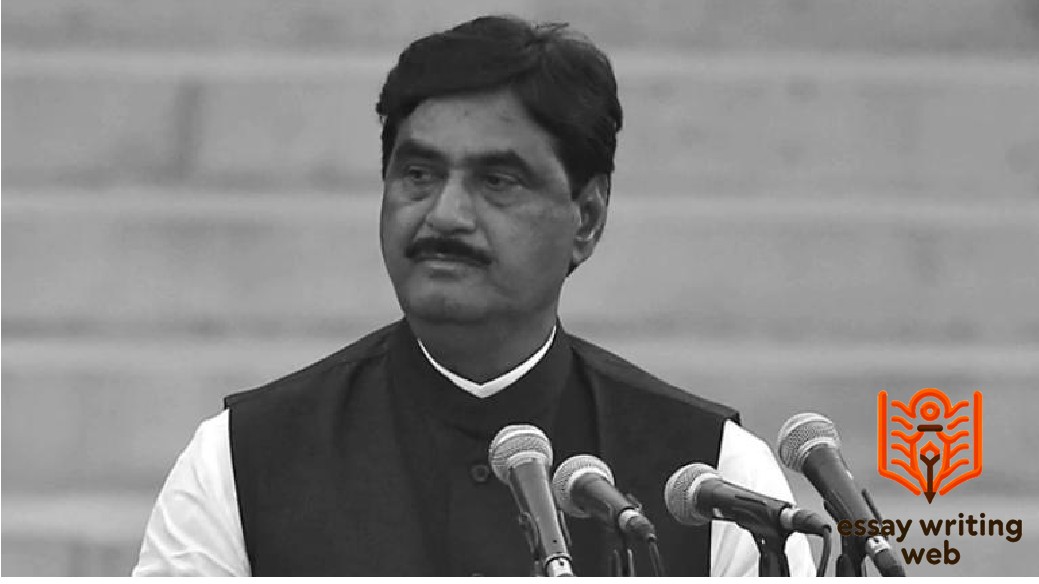
Gopinath Munde’s entry into politics was driven by his early involvement with the Rashtriya Swayamsevak Sangh (RSS) during his college years. The RSS instilled in him a strong sense of discipline, dedication to the nation, and a desire to serve society, particularly the rural and marginalized communities he grew up with. This ideological alignment with the RSS became the foundation of his political career.
Munde’s formal political journey began when he joined the Janata Party in the late 1970s. During this period, the political landscape of India was undergoing significant changes, and Munde aligned himself with leaders who shared his vision for a more inclusive and development-oriented approach to governance. When the Bharatiya Janata Party (BJP) was formed in 1980, Munde became one of its founding members, marking the beginning of his long association with the party.
In the BJP, Munde quickly rose through the ranks due to his strong grassroots connections and commitment to the welfare of the rural population. His association with fellow leader Pramod Mahajan further strengthened his position within the party, and together, they built the BJP’s base in Maharashtra. Munde became a vital leader in the state, known for his ability to galvanize support among the rural electorate.
Munde’s dedication to rural issues and his leadership in the state helped the BJP secure a significant presence in Maharashtra. His rise within the party culminated in his appointment as Deputy Chief Minister of Maharashtra in 1995, solidifying his role as a key figure in both the party and the state's politics.
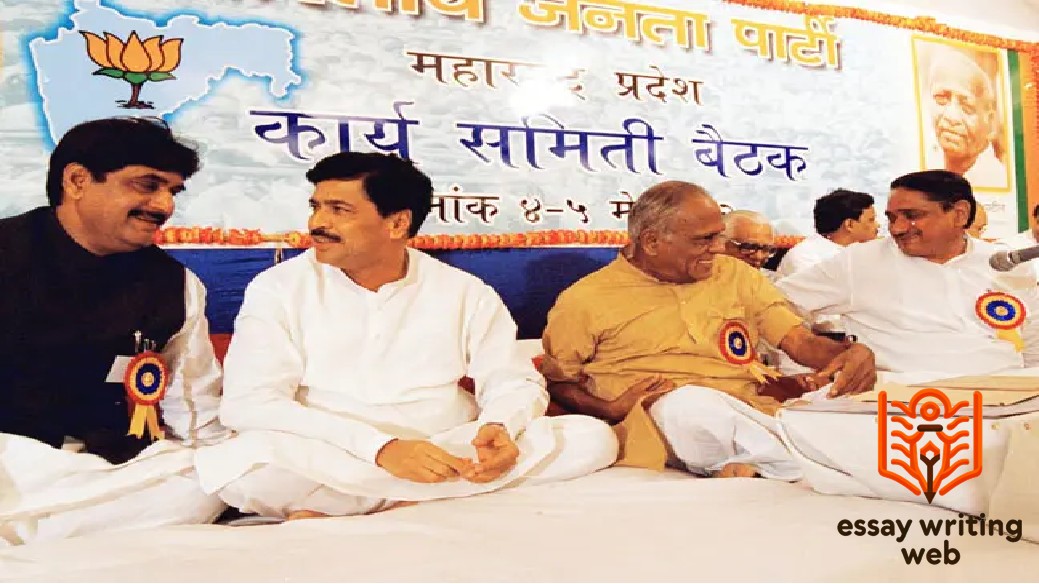
Gopinath Munde, a prominent leader in Maharashtra’s political sphere, played a crucial role in shaping both state and national politics. Hailing from a modest background in Parli, Maharashtra, Munde emerged as a voice for the rural masses and the underprivileged, especially the backward classes. His entry into politics was through grassroots activism, beginning with his involvement in student movements and later joining the Rashtriya Swayamsevak Sangh (RSS). These early experiences helped him build a strong foundation for his political career.
Munde's rise in Maharashtra politics was significantly linked to his ability to connect with rural communities and his commitment to resolving issues like agrarian distress and backward caste upliftment. He was instrumental in expanding the influence of the Bharatiya Janata Party (BJP) in Maharashtra, especially through his alliance with the Shiv Sena. His tenure as the Deputy Chief Minister of Maharashtra from 1995 to 1999, during the BJP-Shiv Sena coalition government, was marked by his focus on rural development, law enforcement, and tackling corruption. His ability to address the concerns of the rural population, particularly sugarcane farmers and laborers, earned him widespread respect.
Munde’s influence extended beyond Maharashtra, as he became a key leader in national politics. As a Member of Parliament and later the Union Minister for Rural Development, he worked tirelessly for the empowerment of the rural poor and backward classes. His sudden death in 2014 was a major loss to Maharashtra and Indian politics, leaving behind a legacy of service, leadership, and dedication to the welfare of the common people.
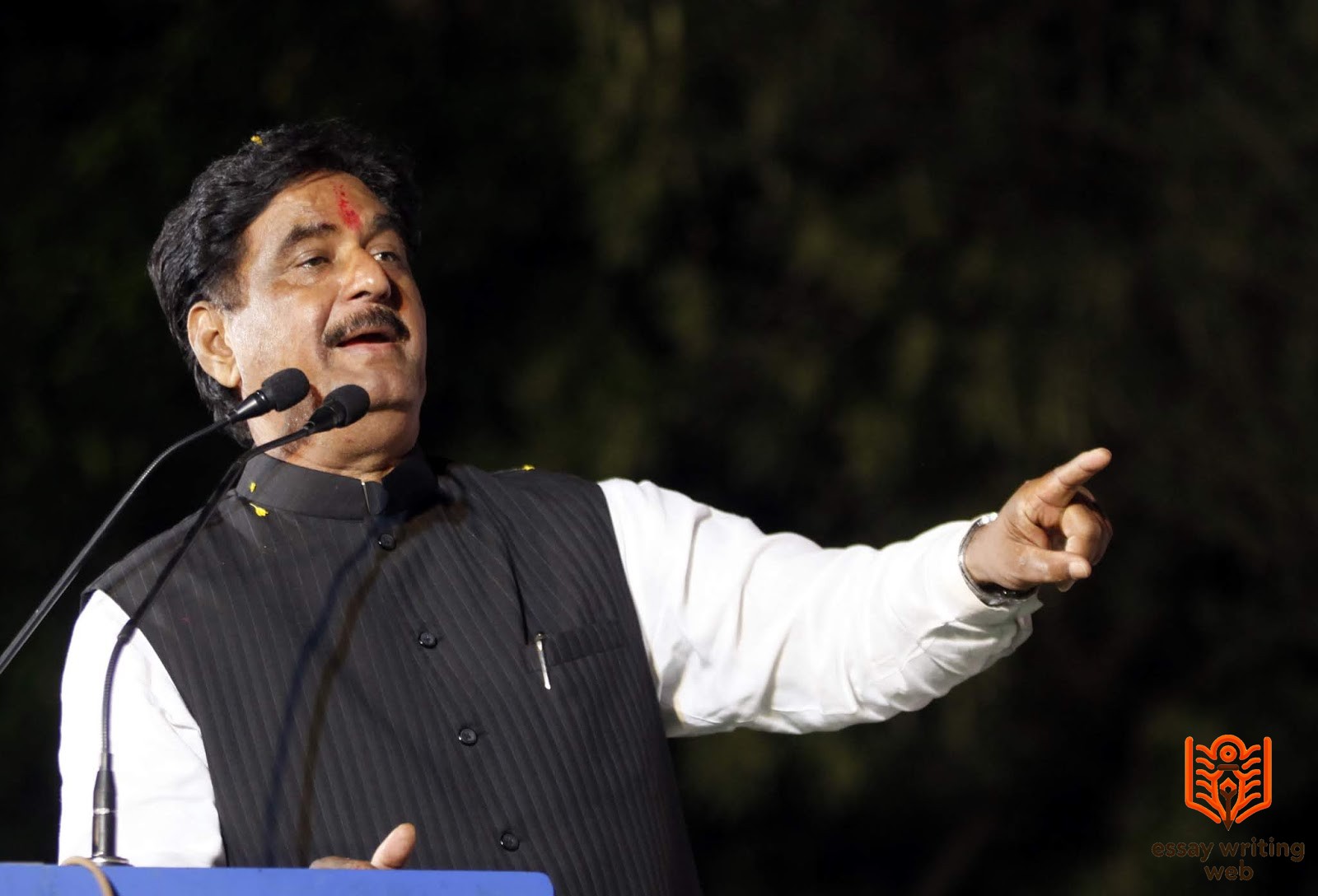
Gopinath Munde, as the Leader of the Opposition in the Maharashtra Legislative Assembly, played a vital role in holding the government accountable and advocating for the interests of the people, particularly those from rural and backward communities. During his tenure from 1992 to 1995, Munde emerged as a strong and fearless voice against the ruling Congress government. His leadership was characterized by his sharp criticism of government policies, especially those that negatively impacted farmers, laborers, and the underprivileged.
Munde was known for his ability to effectively question the government on issues like corruption, poor governance, and agrarian distress. He was instrumental in highlighting the plight of Maharashtra’s farmers, particularly sugarcane farmers, who faced significant challenges during that period. His speeches and interventions in the assembly were marked by his deep understanding of rural issues and his commitment to improving the lives of the common people.
As a leader of the opposition, Munde's role was not limited to mere criticism; he also offered constructive suggestions to improve governance. His dynamic presence in the assembly strengthened the opposition's voice, ensuring that the concerns of the marginalized were heard. His leadership during this period laid the groundwork for his future success and influence in Maharashtra politics.
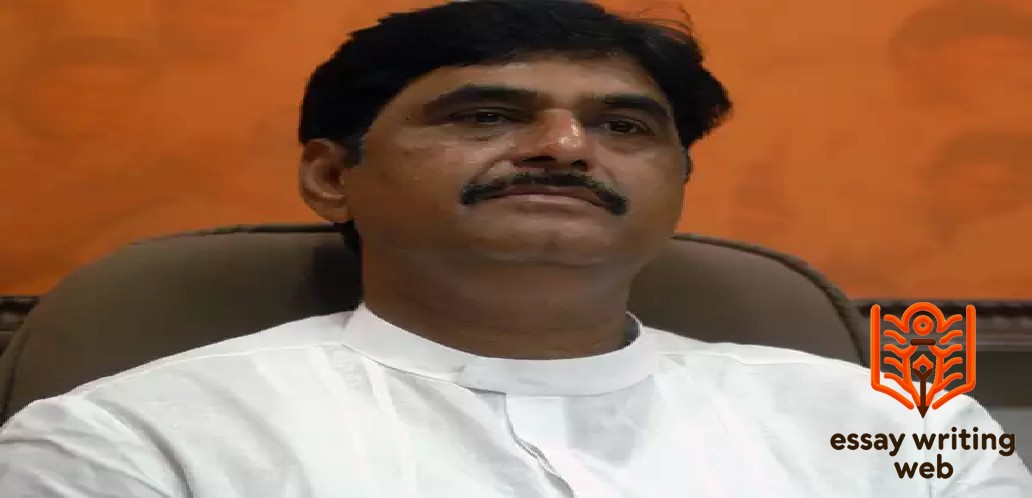
Gopinath Munde was a prominent figure in Indian national politics, recognized for his leadership, dedication, and contribution to the Bharatiya Janata Party (BJP). A leader rooted in Maharashtra's rural politics, Munde rose to national prominence due to his strong organizational skills and ability to connect with the common people. He played a pivotal role in shaping the BJP’s strategies, especially in Maharashtra, where he worked to expand the party's grassroots support.
Munde held various important positions, including serving as the Deputy Chief Minister of Maharashtra from 1995 to 1999. His leadership in the state gained him widespread recognition, which eventually led to his election as a Member of Parliament. In 2014, Gopinath Munde was appointed as the Minister of Rural Development in the Narendra Modi government. His focus on rural issues, farmers' welfare, and infrastructure development marked his brief tenure in national politics. Munde was passionate about addressing the concerns of rural communities, and he consistently advocated for policies that would benefit the agrarian sector.
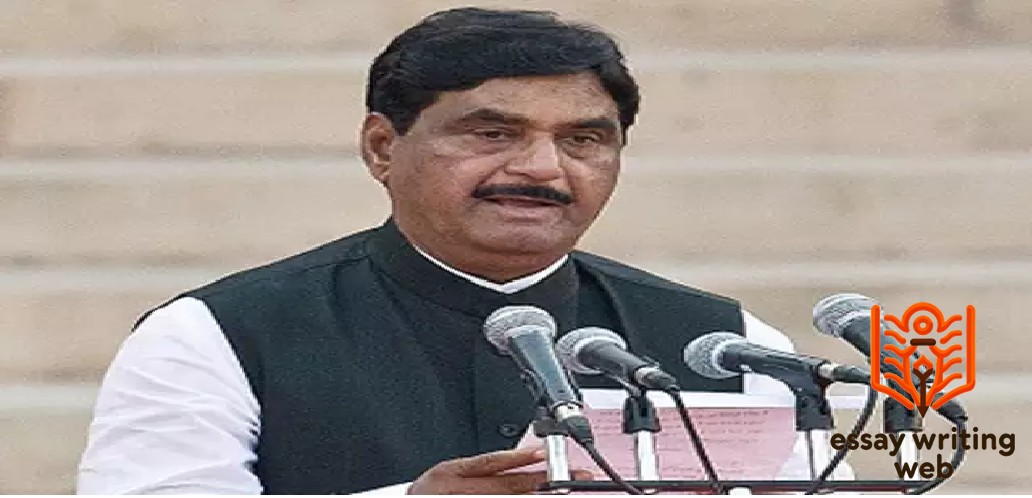
Gopinath Munde's elevation to the national level in Indian politics was marked by his strong leadership and influence in Maharashtra's political landscape. A key member of the Bharatiya Janata Party (BJP), Munde earned recognition for his grassroots work in the state, particularly in mobilizing support among rural voters and championing the causes of farmers and the underprivileged. His political acumen helped the BJP gain a significant foothold in Maharashtra, which eventually led to his rise to national prominence.
In 2009, Munde was elected to the Lok Sabha from the Beed constituency, marking his formal entry into national politics. As a Member of Parliament, Munde was known for his sharp debating skills and ability to highlight critical issues related to rural development, poverty, and agriculture. His efforts to improve infrastructure and bring about social reforms made him a respected voice in the Lok Sabha.
Gopinath Munde re-elected in 2014 and soon after became the Minister for Rural Development in Narendra Modi's cabinet. His tenure, though brief due to his untimely death, was characterized by his strong focus on empowering rural India. Gopinath Munde's work in the Lok Sabha reflected his deep commitment to improving the lives of the rural population and advancing India's overall development.
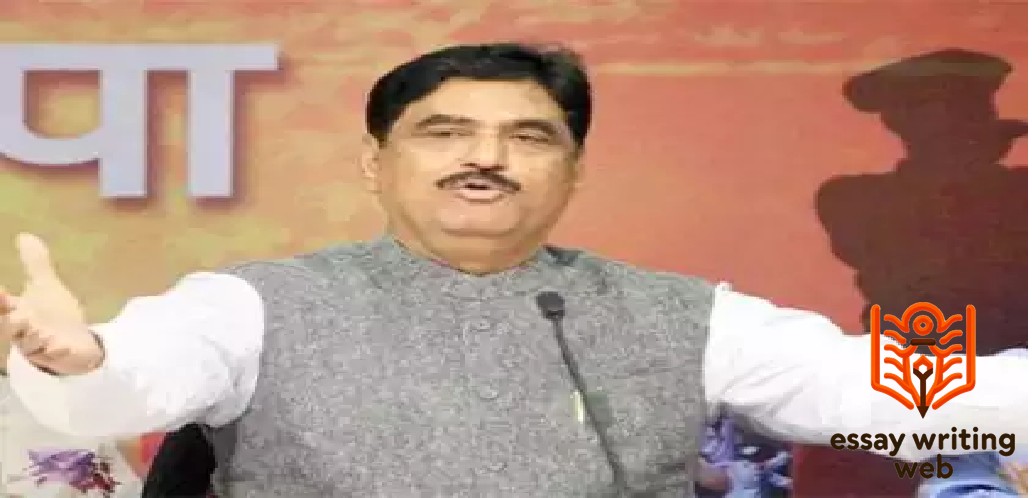
Gopinath Munde was a steadfast advocate for rural development and farmers’ welfare, shaping his political career around the needs of rural India. Coming from a modest background in Maharashtra, Munde had a deep understanding of the challenges faced by rural communities and farmers. His early political career was dedicated to addressing these issues, which earned him a strong base of support among Maharashtra's rural population.
As a leader, Munde emphasized policies aimed at improving agricultural productivity, irrigation infrastructure, and access to resources for farmers. He believed that rural development was key to the overall progress of India, and this belief guided his work both in state politics and at the national level. When he became the Minister of Rural Development in 2014, Munde quickly focused on creating policies that would uplift the agrarian sector, including the expansion of rural infrastructure, roads, and connectivity, which he viewed as essential for empowering villages.
Munde also stressed the importance of agricultural reform, advocating for better pricing and market access for farmers. His consistent focus on rural development was rooted in his commitment to improving the socio-economic conditions of India's farmers and ensuring that they received the support needed to thrive in a rapidly changing economy.

Gopinath Munde's legacy is one of dedication to public service, with a profound influence on both state and national politics in India. Known for his connection to grassroots movements, Munde rose from humble beginnings to become a pivotal leader in Maharashtra and the Bharatiya Janata Party (BJP). His political career was built on the foundation of rural development, social justice, and empowering the marginalized, particularly farmers and the rural poor.
As a leader, Munde's influence was felt across Maharashtra, where he played a critical role in expanding the BJP’s base. His time as Deputy Chief Minister of Maharashtra from 1995 to 1999 was marked by a focus on law and order, infrastructure development, and public welfare programs. At the national level, his appointment as Minister of Rural Development in 2014 reflected his enduring commitment to rural communities.
Munde's sudden death in a car accident in 2014 was a significant loss to Indian politics, but his legacy endures. He is remembered for his honesty, strong leadership, and tireless advocacy for the underprivileged. His efforts to improve the lives of rural citizens and farmers left a lasting impact, shaping policies that continue to influence rural development in India today.
